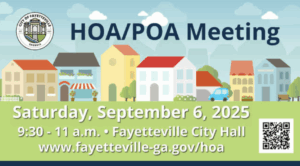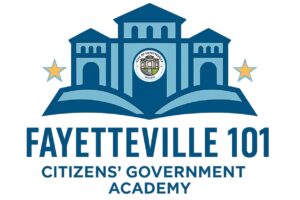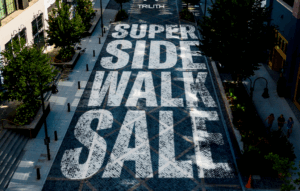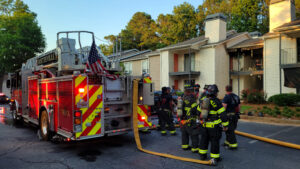The Fayetteville City Council on May 1 approved two of the three requests involving the construction of the Tidal Wave Car Wash at 750 North Glynn Street at Ga. Highway 314. The council approved the rezoning and special exception requests, but denied a setback variance.
Applicant Scott Blackstock, who has constructed a number of car wash facilities around metro Atlanta, presented a litany of reasons why the location would be well-served with what he termed a quality operation that would serve as a gateway to the city, complete with a water structure and landscaping on the order of the Waterfall retail development on Ga.Highway 54 West.
The subsequent approval of two of the items was met with dissatisfaction by the two dozen neighbors in attendance and by attorney Hakim Hilliard who was hired by the owner of the adjacent self-serve car wash. Hilliard during the discussion intimated that legal action would be forthcoming. Citing what he said were flawed procedural issues, Hilliard in a May 5 letter responded to the council’s decisions by asking Mayor Greg Clifton to veto the rezoning and special exception approvals.
Now vacant, the 1.3-acre property on the west side of North Glynn Street and Hwy . 314 has been used by a number of restaurants over the years. Once a Shoney’s restaurant, the location was later operated by Hooters and, more recently, as the Onyx restaurant then as the American Family Buffet.
The Tidal Wave project included three separate requests and three votes. The first was a request to rezone the property from Community Commercial (C-2) to Highway Commercial (C-3).
The second item asked for a special exception to allow a car wash facility on the lot. Blackstock said C-3-zoned property was positioned in areas adjacent to the 1.3-acre lot.
The third item was a variance request for a front yard setback from 40 feet to approximately 20 feet along Hwy. 85 and a setback from 30 feet to approximately 2 feet along Commerce Drive at the rear of the property. Perhaps the most pertinent aspect of the variance request was to offer to close the curb cut positioned very near the intersection of Glynn Street and Hwy. 314.
Hilliard prior to the discussion by council said a successful vote “would not hold up in court.”
Councilman Ed Johnson later made a motion to deny the rezoning, though his motion died for lack of a second. Councilman Jim Williams then made a motion to approve the rezoning. That motion carried on a 4-1 vote with Johnson opposed.
Johnson referenced the number of area residents in attendance, noting the need for the council to heavily consider the wishes of community members who attend council meetings and make their positions known.
The second vote was on the appeal of a special exception recently denied by the Planning and Zoning Commission. Johnson made a motion to deny the special exception, but again his motion died for lack of a second. A new motion to approve the exception was made by Williams and seconded by Councilman Mickey Edwards. The vote was 4-1, with Williams, Edwards, Councilman Scott Stacy and Councilman Paul Oddo in favor and Johnson opposed.
The third vote dealt with a previous Planning and Zoning denial of a setback variance. Johnson made a motion to deny the appeal, followed by a second from Williams. The vote was 4-1 with Johnson, Edwards, Williams and Stacy in favor and Oddo opposed. Oddo after the vote said he had wanted to have the item tabled.
The next step for the proposal will be to return to the Planning and Zoning Commission to hash out development plans and to see what comes of the variance request.
Though it did not come up at the meetings, it is noteworthy that the adjacent property extending from Hwy. 314 on the north and extending to the south to include the 692 Shopping Center, the former home of the Longbranch restaurant, is included on the city’s Tax Allocation District (TAD) map. This area, along with many of the city’s waning commercial areas, carries the hope that the TAD incentives will attract large redevelopment projects intended to revitalize older shopping centers and add to the city’s sales and property tax coffers.












Leave a Comment
You must be logged in to post a comment.